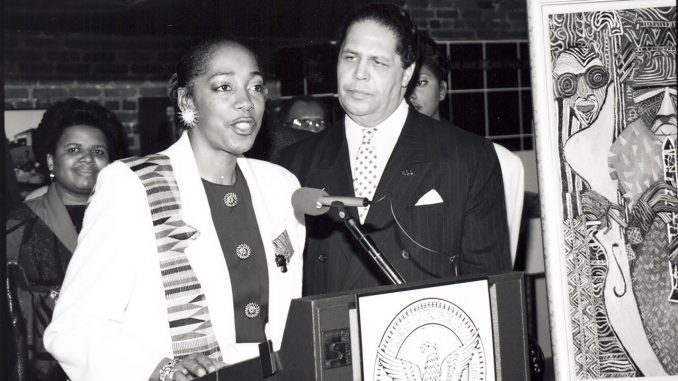
While growing up in Greensboro, North Carolina, during the civil rights movement, Toni Oliver thought the only professions open to her as a Black woman were minister, teacher or mortician.
Coming from a family of teachers, Oliver thought her fate was sealed as a music teacher because she was a talented singer and pianist.
But after taking a civics class in the ninth grade, her vision changed and she discovered her passion for social work.
“I thought it was so fascinating that there were jobs where people actually worked for a living to help other people,” Oliver said.
Oliver, a 1979 master’s of social work alumna, went on to make a mark in the social work field as the CEO and founder of Roots, Inc., an adoption agency in Georgia that worked to improve adoption outcomes for African-American children ages 13 to 17 in the foster care system.
She started the agency in 1992, but it closed in 2010 after losing federal funding. She is currently the president of the National Association of Black Social Workers.
While pursuing her master’s at Temple, Oliver said she discovered a pattern.
“The one resounding cry was people were finding it hard to place Black children in families,” Oliver said. “I was told Black families weren’t adopting.”
Through her research, and experiences working with different adoption agencies across the country, she found that Black children tended to stay in the foster care system for longer periods of time than white children.
These issues still ring true today. According to a report from the United States Department of Health and Human Services, more than 100,000 children ages 13 to 17 were in foster care in 2016. Additionally, according to the National Foster Care Youth Institute, African-American children make up 20 percent of the foster care population and have the highest rate of victimization among all racial groups in foster care.
After working in child welfare in Georgia for a short time, Oliver said she started Roots in 1992 because there was a lack of outreach from adoption agencies in Georgia to the community and the media. The lack of outreach in Georgia was noticeable to Oliver, compared to her experience working in the Delaware Valley.
“I’m not seeing public service announcements on TV,” Oliver said. “I’m not seeing programs about the need for families, so I said, ‘What’s going on here?’”
To address the issue, she started Roots in a small room at the New Life Presbyterian Church in College Park, Georgia.
The small room in the church eventually evolved into a fully staffed office.
Roots began a strategic recruitment campaign reaching out to newspapers, TV news stations and Georgian residents to try and find adoptive families.
Oliver implemented family preservation strategies, a movement to keep children at home with their families rather than in foster homes, and paid attention to how communal ties and kinship care impact adoption.
She was able to train adoptive families on how to tend to a child’s individual needs. Roots also provided adoptive parents support after the adoption process was finalized.
In its first year without federal aid in 1992, the agency responded to 300 inquiries, prepared and trained 35 adoptive families and placed 15 children ranging from 3 to 12 years old in homes.
In 1977, Oliver enrolled in the master’s of social work program at Temple after visiting friends in Philadelphia who attended Bennett College in North Carolina with her as undergrads.
At Temple, Oliver worked on a six-week community encounter assignment where she assessed North Philadelphia neighborhoods based on income, housing and other factors.
“It immediately engaged you and how you look at communities that you’ll ultimately work in,” Oliver said.
Temple is also where Oliver connected with the National Association of Black Social Workers. Some of her professors were members of the organization.
“My first national conference was the year that I graduated,” Oliver said. “I was so fascinated by the professional development opportunities, as well as collegiate, that were afforded through the organization.”
Oliver said she instantly connected to people at the organization. Leonard Dunston, who was a former president of NABSW, gave her confidence by encouraging her to join the committee and ultimately run for president.
She later became the vice president in 2010 and then president in 2014.
Longtime friend Denise McLane-Davison, who met Oliver at a NABSW conference, said Oliver is a warrior for Black families and pushes others to work hard for their passions.
“I love that she allows room for me and others to dream,” McLane-Davison said. “She doesn’t mind taking the magic carpet ride. She consistently invests in people.”
Oliver credits the development of Roots to her staff and the skills she unexpectedly picked up during and after college, like grant-writing.
“I was sad to see it go,” Oliver said.
Oliver is currently serving out her last term as president of NABSW. She isn’t the music teacher she pictured she’d be at a young age, but she said she was able to try something different, which led her to a new passion.
“All these things were not intentional,” Oliver said. “That ninth-grade flash of possibility connected me to social work, which provides opportunities for people who are marginalized and devalued.”


Heart touching story, very inspirational. Hats off for her courage.